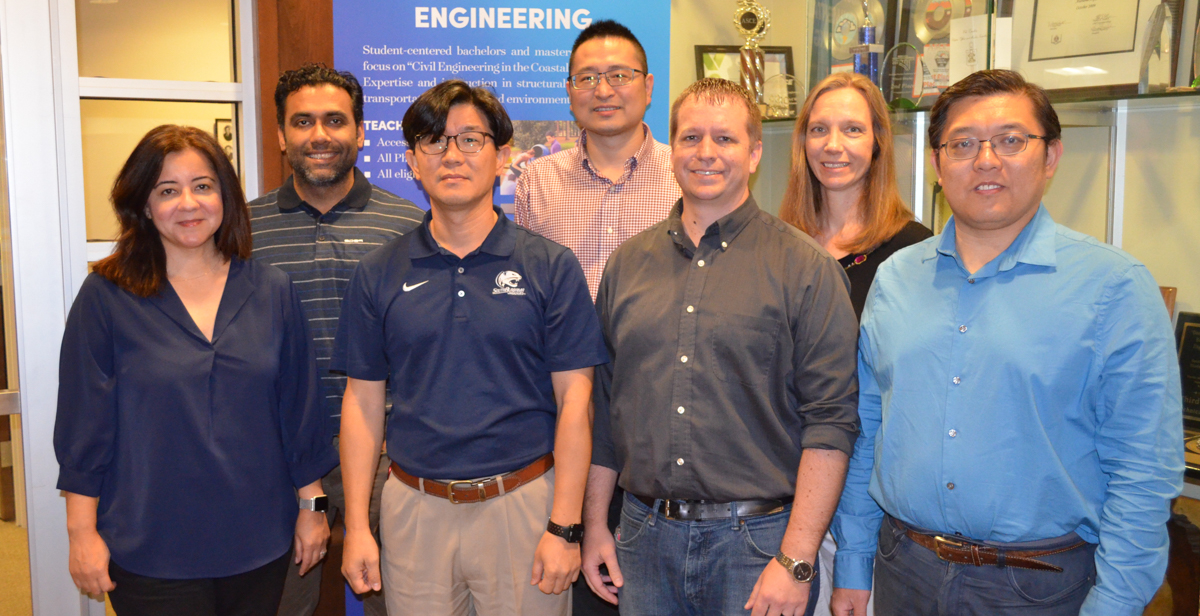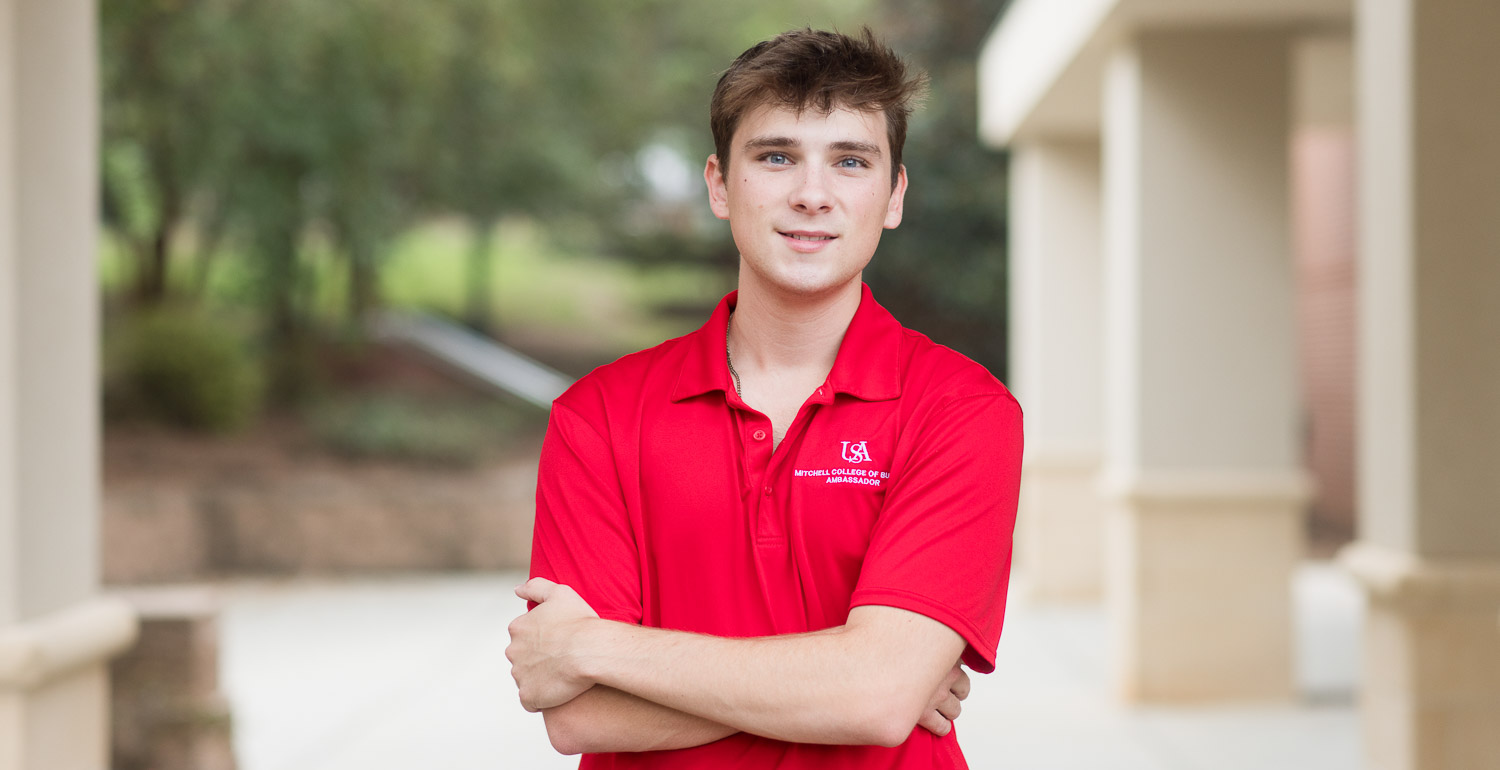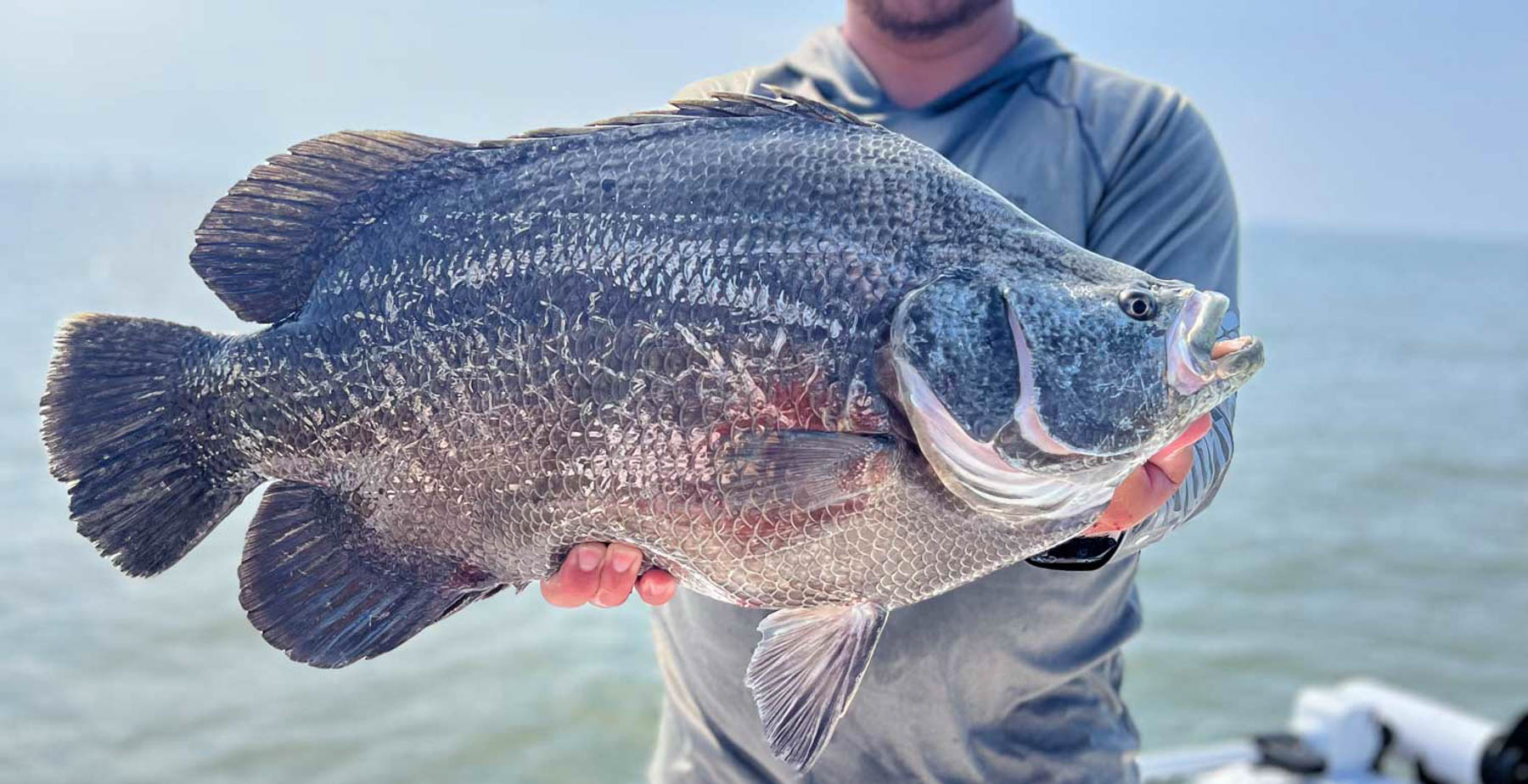South To Lead $1.9 Million Study on Microplastics
Posted on June 7, 2023

Dr. Shengwua Wu, a University of South Alabama assistant professor of engineering, will lead a regional project to reduce microplastic marine debris along the Gulf Coast.
The Mississippi-Alabama Sea Grant Consortium is administering the $1.9 million waste plastic program with funding from the National Oceanic and Atmospheric Administration’s National Sea Grant Infrastructure Investment and Jobs Act Marine Debris Challenge.
The project is one of 10 selected nationwide and will leverage resources in three states along the Gulf Coast, including 10 wastewater treatment facilities in Mississippi, Alabama and Florida. The project aims to measure microplastic concentration, improve microplastic understanding on the environment and enhance collaboration in reducing microplastics pollution.
“Our proposed initiative aims to establish the Gulf Coast Center for Addressing Microplastics Pollution, which will serve as a regional leader in mitigating and preventing the presence of microplastics in the Gulf of Mexico,” said Wu, assistant professor in the Department of Civil, Coastal and Environmental Engineering.
Microplastic particles – defined as less than 5 millimeters in diameter, the size of a pencil eraser – have been found in ecosystems worldwide. Smaller microplastics have been found in high concentrations in marine environments, drinking water, bottled water and even in table salt.
Because these plastics degrade so slowly, often over hundreds of years, they can accumulate in the bodies and tissues of many organisms. Health experts worry about the long-term effects on the environment and on the human body.
“Microparticles and microplastics were discovered in human thrombi for the first time during examination of patients who received cardiovascular surgical operations,” said Wu. “Microplastics in circulation can affect thrombosis through size-dependent pathways, which can have severe health consequences.”
Wu’s research team includes six other South professors and will collaborate on the project with the Stevens Institute of Technology, Mississippi-Alabama Sea Grant Consortium, Osprey Initiative LLC, Alabama Department of Environmental Management, Gulf of Mexico Alliance, Goodwill Gulf Coast Inc., Mobile Baykeeper, City of Mobile, Dauphin Island Water and Sewer, Mississippi Department of Marine Resources, Emerald Coast Utilities Authority, Jackson County Utility Authority and the Harrison County Utility Authority.
“Collaboration and interdisciplinary work are essential to successfully address the significant environmental issue of microplastics pollution in the Gulf Coast,” Wu said. “I would like to express my gratitude to all of our partners for their invaluable support in securing this significant grant.”
Success of the project will be measured by the degree to which it effectively mitigates microplastics pollution in the Gulf Coast region and promotes environmental stewardship and awareness among stakeholders and the general public.
“We plan to create a website,” he said, “that will share all the project’s results, findings, techniques, and tools such as sensor devices, software programs, specifications and user-friendly apps that help mitigate microplastics concentration in water bodies and the marine environment.”



